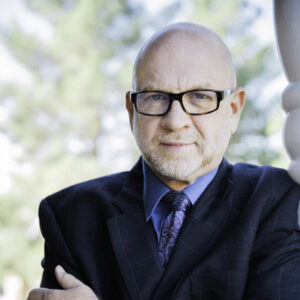Trauma, toxic stress, or history of adversity routinely positions the body and brain to be “triggered.” That is, the “now” moment is being interrupted by the “then” moment, or moments. The inability or the limited range for the individual to make the distinction between these two time frames is what is called “perceived threat.”
In times like these, the body and the brain’s limbic system shift into an aroused state in order to prepare itself to survive the believed threat. This shift saves lives when the person is in actual danger, but if not, then this reaction undermines meaningful relationships and diminishes effective communication.
Dave Grossman, a Lieutenant Colonel with the U.S. Army Rangers and a trauma-informed author, directs his readers to: “Make it slow to make it smooth. Once it is smooth, it goes by faster.”
Why is it difficult for most people to move at a slower pace, to pause, or to take in the broader picture?
Thomas Merton, who lived and died representing many of the principles of intentional wholeness and responsible repair of the earth, was once asked to comment on the spiritual condition of our time. He answered with a single word: “Efficiency.”
Merton clarified, “From the monastery to the Pentagon, the plant (aka, the factory) has to run… and there is little time or energy left over after that to do anything else.”
Efficiency is an outcome-based approach. The emphasis and attention is primarily on achieving what has been predicted or replicating what is wanted. This state of being drives stress up, not out.
Whether it is an individual’s aroused body or an overly excited society, the consequences are the same. As long as we perceive threat we will react with self-protective behaviors that enlarge our fears; our relationships will erode making close connections further distrusting; and our thoughts, ideas, and creativity will be scrambled as we frantically search for our lost words.
What can be done? How can you and I reverse or redirect this trajectory?
The Ancients had it figured out long before you and I arrived on the scene. Grossman’s motto reflects this wisdom. Slow down, learn the value of pause, build margin into your routines.
Try this exercise and experience the difference in your body; perhaps now in this moment.
- Give yourself permission to relax
- Inform yourself, without judgment, that you are safe
- Take a slow 4-count breath in through your nostrils
- Hold your breath for 4 counts
- Breathe out slowly through your partially open lips for 4 counts
- Hold your breath again for 4 counts
- Repeat this again, again, and again
- Observe your body relaxing and your brain beginning to shift towards calm
- Acknowledge the good work you just did
- Acquaint yourself with what calm feels like for you
This exercise does not have the same effect on everyone, but the general principles are universal. By slowing down your gait and opening up your gaze, hope becomes greater and you will likely be more grounded. This principle supports individuals to:
- Self-reflect
- Self-evaluate
- Self-determine
- Self-accept
- Self-regulate
- Self-care
I invite you to consider, what is to be gained by living and working while holding your breath?
 Roderick Logan, DPTh, CCTS, CFTP, FFTT
Roderick Logan, DPTh, CCTS, CFTP, FFTT
Senior Faculty at Arizona Trauma Institute and Trauma Institute International
Blog host of Trauma Informed Parenting
Trauma & Recovery Specialist Making Space to Heal
Dr. Logan has more than 30 years experience as a trainer and facilitator. He holds a Master’s in Biblical Counseling and a Doctorate in Practical Theology. His trauma certifications CFTP and CCTSF are with TII and IATP. He is prolific at presenting transformative care principles and life skills for paraprofessionals, non-clinical caregivers and industry leaders desiring to change within their culture. Roderick is proud to be part of a community of healers seeking to prevent toxic stress, raise awareness of Adverse Childhood Experiences (ACEs) and support trauma recovery and resiliency building. As a trauma specialist, he works routinely with foster and adoptive parents, grieving families dealing with loss, and caregivers seeking to become trauma informed.



